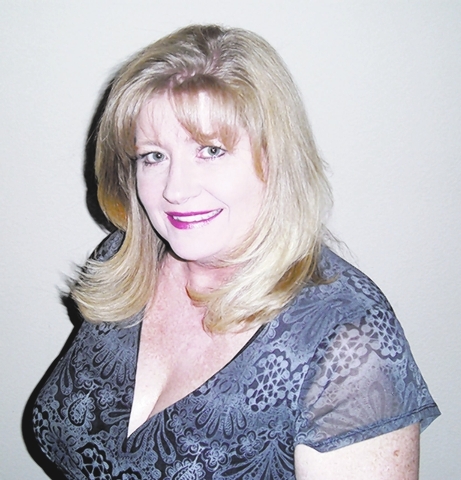University offers free PTSD counseling in LV
The University of Phoenix Las Vegas Campus is offering free family counseling to the Las Vegas community, including veterans and their families, to augment a new hands-on training for prospective counselors in the mental health profession.
Allie Wright, who chairs the university’s College of Social Sciences, knows why family counselors are important, especially when it comes to providing their service for military families.
“People need our services more than ever. Mental wellness is at the forefront, and we’re removing the stigma of mental illness,” said Wright, a licensed clinical psychologist.
Last month, the university launched an 18-credit military family counseling certificate program aimed at reducing the shortage of counselors who specialize in dealing with families of veterans and active-duty military personnel. The program does not lead to professional certification or licensure as a mental health provider.
The program entails taking six classes to earn a certificate as a mental health clinician whether it be a clinical psychologist, a marriage family therapist, clinical professional counselor or even a social worker.
Wright noted the demand for trained clinicians because of increased numbers of soldiers, sailors, Marines and airmen returning from the nation’s overseas wars on terrorism.
“There is a mental health shortage,” she said last week at the university’s Henderson Learning Center.
“The strain on the military to provide essential services to military families has increased as a result of recent global conflicts.” she said. “As more service members return home from the wars in Iraq and Afghanistan, civilian counselors must now be versed in the knowledge and skills necessary to work with military families.”
A case in point is former Iraq War soldier Omar Gonzalez, an Army veteran suffering from post-traumatic stress disorder who scaled the White House fence Friday.
After his arrest, Gonzalez’s stepson, Jerry Murphy, said his stepfather needs counseling for PTSD and shouldn’t be treated like a criminal.
A situation like Gonzalez’s might have been averted through family counseling.
“While I can’t address this specific situation, what I can tell you is that post-traumatic stress disorder can cause a number of behavioral changes that can be managed or improved through dedicated work with a licensed mental health professional,” Wright said.
In the post-9/11 era, about 30 percent of U.S. military personnel who deployed are expected to be treated for PTSD.
Ten years ago there were 724 veterans — from World War II to operations Iraqi Freedom and Enduring Freedom — in the VA Southern Nevada Healthcare System getting specialized care for PTSD. In all, they made 10,000 visits to local clinics for mental health sessions and treatments. From 1999 through 2004, about 5,000 veterans had been diagnosed with PTSD from all wars. Currently there are 6601 with a primary diagnosis of PTSD in the Las Vegas area.
Wright said the University of Phoenix program can “pick up where the government left off.”
For the past two decades in Las Vegas, the private higher education institution has offered associate, undergraduate and graduate degrees in business, education, criminal justice, nursing, human services, psychology and technology. The new certificate program is available to master in counseling graduates and mental health professionals.
“The program is designed to educate local mental health practitioners interested in helping veterans and their families heal from stressful and traumatic experiences,” she said, adding that it serves “veterans and their families in addition to care provided by the Veterans Affairs system.”
The postgraduate certificate program features four courses that focus on military family life, military culture, major issues and concerns that military families face, and assessment of and appropriate interventions for working with military families.
Students in the program receive hands-on experience through simulation of counseling patients. Faculty in an observation room offer real-time feedback. The facility is equipped so that both live and recorded simulated scenarios can be viewed. The hands-on experience complements the classroom curriculum.
“This certificate program is designed to train clinicians on how to work specifically with military families. It’s going to train them, educate them in the military culture, military families, the particular issues and challenges that they face, along with the assessment in and the interventions for treating military families,” she said.
Why are military families different?
“Because of the unique challenges that they face,” she said. “The transitions with jobs and schools, their relocations, the separation between family members; substance abuse; financial strains. And there’s loss and even injury.
“There is no one-size-fits-all. You really have to treat every case individually because everyone is different, everyone brings their own dynamic to the situation, their own history to the counseling room,” she said.
When it comes to grief and loss of a loved one, counselors need to keep in mind that “there’s no such thing as getting over it. And a lot of it has to do with learning to live with the loss. And sometimes it means living in a different way.”
Counselor candidates that the program seeks are “people who want to roll up their sleeves and help. Our students as a whole are very passionate about helping. And they want to make a difference,” Wright said.
“It’s an honor to be able to support the sacrifice that our military has made to ensure our freedom,” she said.
The Associated Press contributed to this report. Contact Keith Rogers at krogers@reviewjournal.com or 702-383-0308. Find him on Twitter: @KeithRogers2.




























